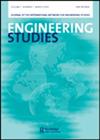工程无形资产:美国服务经济中的技术就业
IF 1.3
3区 工程技术
Q2 EDUCATION, SCIENTIFIC DISCIPLINES
引用次数: 0
摘要
工程职业与生产物质产出的工业共同发展:采矿、建筑、制造业。然而,富裕经济体长期以来一直在转向无形服务,包括金融、批发和零售贸易、娱乐、旅游和交通、医疗保健和公共部门(包括,例如,大部分教育)等行业的产品。对美国来说,这种转变在一个多世纪以来的统计数据中很明显,服务业现在占所有就业岗位的近90%。工程师的工作份额较低,但即便如此,大多数人还是在服务生产企业工作。服务和商品的纠缠和相互依赖阻碍了对动态的理解,正如官方就业统计中被归类为与计算机相关的工作的快速增长,尽管其中许多工作类似于工程。正因为如此,探索实际工作内容的实地研究将需要在后工业经济中更清晰地描绘雇主分配给技术工人的日常任务。本文章由计算机程序翻译,如有差异,请以英文原文为准。
Engineering Intangibles: Technical Employment in the US Service Economy
Engineering occupations coevolved with industries producing material outputs: mining, construction, manufacturing. Yet wealthy economies have long been moving toward intangible services, the products of industries including finance, wholesale and retail trade, entertainment, travel and transportation, health care, and the public sector (including, e.g. much of education). For the United States the shift is evident in statistical data going back well over a century and services now account for nearly 90 percent of all employment. The job share is lower for engineers, but even so the majority work for service-producing entities. Entanglement and interdependence of services and goods hinders understanding of the dynamics, as does rapid growth in jobs classed in official employment statistics as computer-related even though much of the work resembles engineering. Because of this, field studies that explore actual job content will be needed to develop clearer pictures of the everyday tasks employers assign technical workers in postindustrial economies.
求助全文
通过发布文献求助,成功后即可免费获取论文全文。
去求助
来源期刊

Engineering Studies
ENGINEERING, MULTIDISCIPLINARY-HISTORY & PHILOSOPHY OF SCIENCE
CiteScore
3.60
自引率
17.60%
发文量
12
审稿时长
>12 weeks
期刊介绍:
Engineering Studies is an interdisciplinary, international journal devoted to the scholarly study of engineers and engineering. Its mission is threefold:
1. to advance critical analysis in historical, social, cultural, political, philosophical, rhetorical, and organizational studies of engineers and engineering;
2. to help build and serve diverse communities of researchers interested in engineering studies;
3. to link scholarly work in engineering studies with broader discussions and debates about engineering education, research, practice, policy, and representation.
The editors of Engineering Studies are interested in papers that consider the following questions:
• How does this paper enhance critical understanding of engineers or engineering?
• What are the relationships among the technical and nontechnical dimensions of engineering practices, and how do these relationships change over time and from place to place?
 求助内容:
求助内容: 应助结果提醒方式:
应助结果提醒方式:


